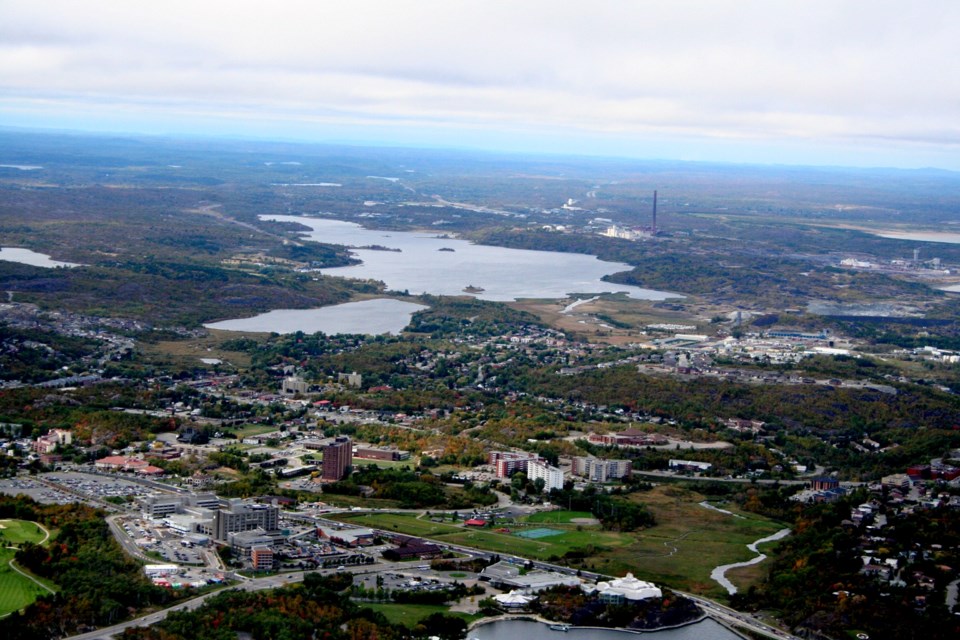Claim: City of Greater Sudbury taxes are higher than those in other municipalities.
As with any political campaign season, taxation is front and centre in this year’s municipal election, with City of Greater Sudbury rates criticized as being greater than other municipalities.
Last month, Sudbury.com reached out to all candidates for their opinions on whether the city should proceed with constructing a new or renewed arena.
In his response, Ward 10 candidate Michael Sanders asserted there’s an “unmoored tax levy” in Greater Sudbury.
Context was added to the story in which it was pointed out city taxation has been reported as middle-of-the-road among Ontario municipalities, and low when compared to municipalities with populations greater than 100,000.
The statistics used to come up with the city’s assertion constitute “cherry-picking,” in that the category chosen is one of few in which city taxes rank average, Sanders countered.
“Senior executive homes, we’re on the cusp, I suppose, along with some other categories,” he said. “But multi-residential buildings and businesses (and I own both) are paying relatively high rates.”
The statistics used by the city to promote its taxes as being low were drawn from the annual BMA Management Consulting Inc. report, which compares 114 Ontario municipalities.
The city uses a specific “detached bungalow” residential example to compare taxes paid with other municipalities so there’s a direct parallel between each municipality. The example property is promoted as an average home, thereby representing the average experience for the greatest number of taxpayers.
Another approach is comparing municipalities by tax rate, which favours municipalities with greater assessed values, such as those in the Greater Toronto Area, whose rates are lower.
This is how real estate website Zoocasa compares municipalities in their annual report, which routinely ranks Greater Sudbury as carrying among the highest tax rates in the province.
An example Zoocasa uses to give their reporting context is that a Toronto homeowner with a property valued at $500,000 would pay $3,055 in property taxes based on the city’s rate of 0.611013, which is the lowest among those listed. A similarly priced home in Windsor, which carries the highest tax rate of 1.818668, would have a tax bill of $9,093.
However, mortgages go a lot further in Windsor than they do in Toronto. The average home price in Windsor is $535,452 while the average home price in Toronto is $1,090,096. Greater Sudbury’s average housing price in 2020 was $356,633.
Comparing a specific property between municipalities draws a clearer “apples to apples” parallel, the city has argued. The detached bungalow example they and 113 other Ontario municipalities use is a 1,200-square-foot home with three bedrooms, one and a half bathrooms and a garage on a 5,500-square-foot property.
The owner of this detached bungalow example in Greater Sudbury would have paid $3,453 last year, which is in the mid-range among Ontario municipalities the latest BMA report lists on pages 305-306), whose average is $3,613.
Among municipalities with a population of greater than 100,000, the taxes charged on this example property in Greater Sudbury is the third lowest among the 30 listed (their average is $4,269).
There are, however, other property examples listed in the report for which Greater Sudbury’s tax bills compare differently against the averages for both Ontario municipalities and Ontario municipalities with a population of 100,000 and greater:
- Two-storey home: HIGH at $5,473 (avg. $4,781 provincially, $5,362 among 100,000+)
- Senior executive home: HIGH at $6,930 (avg. $6,657 provincially, $7,267 among 100,000+)
- Multi-residential walk-ups per unit: HIGH at $1,889 (avg. 1,440 provincially, 1,824 among 100,000+)
- Multi-unit residential high-rises per unit: MID at $2,015 (avg. 1,868 provincially, $2,069 among 100,000+)
- Office buildings per square foot: HIGH at $3.62 (avg. $3.05 provincially, $3.62 among 100,000+)
- Neighbourhood shopping per square foot: HIGH at $4.84 (avg. $3.72 provincially, $4.74 among 100,000+)
- Hotels per suite: HIGH at $1,726 (avg. $1,595 provincially, $1,617 among 100,000+)
- Motels per suite: HIGH at $1,977 (avg. $1,208 provincially, $1,490 among 100,000+)
- Standard industrial per square foot: HIGH at $3.64 (avg. $1.56 provincially, $1.96 among 100,000+)
- Large industrial per square foot: MID at $1.17 (avg. 1.10 provincially, $1.23 among 100,000+)
- Industrial vacant land per acre: HIGH at $6,328 (avg. $4,533 provincially, $9,638 among 100,000+)
City council approved the 2022 property tax policy on April 19, which included the following property tax ratios:
- Residential: 1
- Multi-residential: 1.965
- Commercial: 1.912
- Industrial: 3.590481
- Large industrial: 4.167760
- Pipelines: 2.179489
- Farm: 0.2
This means, for example, that a multi-residential property owner will be charged 1.965 dollars for every dollar a residential property owner pays.
The only two ratios to change this year were the two industrial tax ratios, which decreased slightly as a result of limitations imposed on these property classes by provincial legislation. They both currently exceed the provincial threshold of 2.63, which they are slowly inching down toward.
Although the city’s average taxes paid for large industrial properties is in the mid-range at $1.17 per square foot, their average for standard industrial properties ($3.64 per square foot) is the highest in the province.
A more generalized ranking in the BMA report points to the ability for people to afford taxes by comparing property taxes paid against average household income.
Greater Sudbury’s property taxes as a percentage of income is 3.9 per cent (average household income of $105,616 and average residential taxes paid of $4,141). This is considered in the mid-range among Ontario municipalities, with a provincial average sitting at 3.8 per cent.
Verdict: Taxes vary greatly depending on property type, with the average homeowner paying in the mid range compared to other Ontario municipalities and the owners of other property types paying in the mid to high range.
Tyler Clarke covers city hall and political affairs for Sudbury.com.
